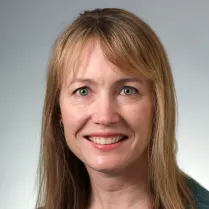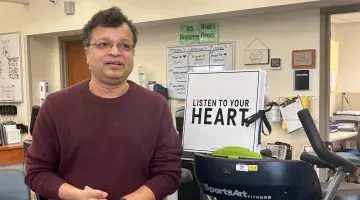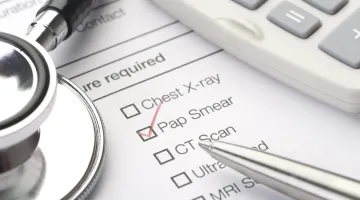Six Tips for Managing COPD
Author

Karin Sloan, MD
Chronic obstructive pulmonary disease (COPD) is a lung disease that makes it hard to breathe. It is caused by damage to the lungs over many years, most commonly from smoking. The disease affects more than 30 million Americans. Symptoms of the disease include shortness of breath that gets worse with activity and a chronic cough. COPD is diagnosed by a breathing test.
If you have COPD, you know managing it takes a lot of work. Patients typically have daily medications that control symptoms, prevent flare-ups and can keep the disease from getting worse, as well as “rescue” medications that help if a flare-up does occur. Sometimes, if these medications don’t help, patients can end up in the hospital for emergency intervention.
Medications aren’t the only tool to manage COPD. Here are six recommendations that I give to my COPD patients to keep their symptoms in check.
- Don’t smoke. This is the best way to keep COPD from getting worse. If you smoke, it is never too late to quit. Ask your doctor about the best way to kick the habit.
- Get a flu shot every year. The flu can be more severe in people with COPD. A shot may prevent the flu or make the flu less serious.
- Get a pneumonia shot. People with COPD should have a pneumococcal vaccine. They should also geta vaccine called Prevnar when they turn 65.
- Get regular exercise. It may sound strange, since shortness of breath often gets worse with activity. But regular exercise helps you be less short of breath. Your doctor may recommend a Pulmonary Rehabilitation program.
- Eat regular, well-balanced meals. Healthy foods can help keep your whole body strong. Avoid large meals, as they can put pressure on your lungs and make it more difficult to breathe.
- Recognize an exacerbation early. A COPD exacerbation is when a patient’s symptoms flare up. If you experience more shortness of breath, wheezing, or coughing than usual, or a change in your typical amount or color of phlegm, you should increase your rescue medication to every 4-6 hours and call your doctor. It is important to catch this early to prevent a more severe exacerbation and prevent you from needing to be hospitalized.
By taking these simple steps, patients with COPD can manage their symptoms and enjoy life to the fullest.
Struggling to exercise with COPD? Our “Get Up and Go” community exercise class is a great way to get started. Led by an experienced professional, this small group class can help improve your health. Call 781-624-4367 or e-mail jlogan [at] southshorehealth.org (jlogan[at]southshorehealth[dot]org) for more.
Author

Karin Sloan, MD






